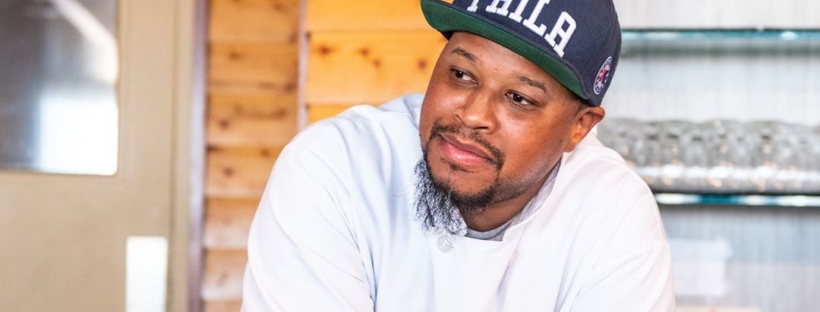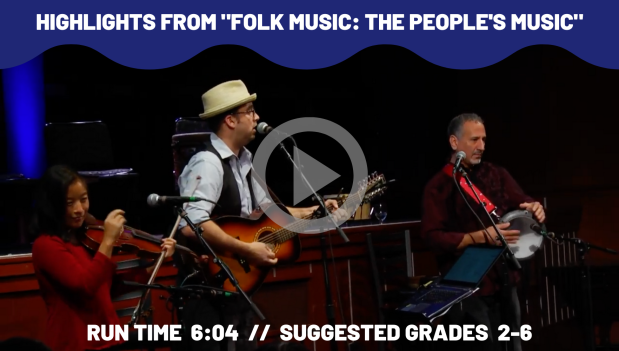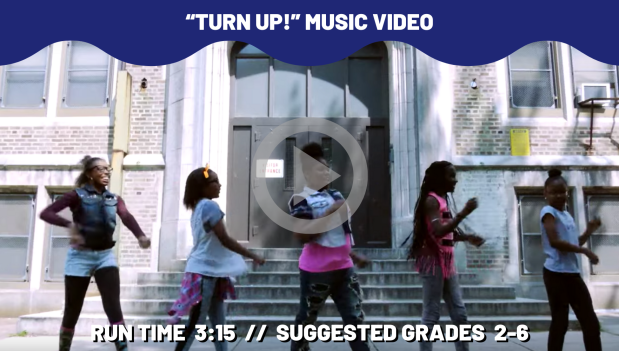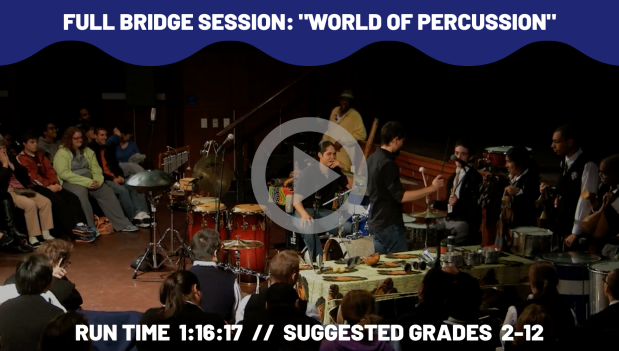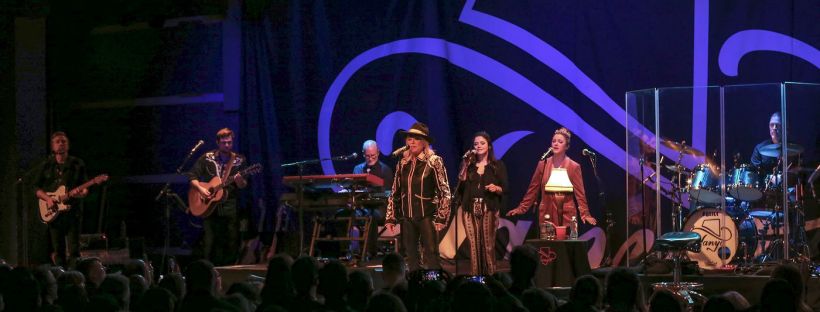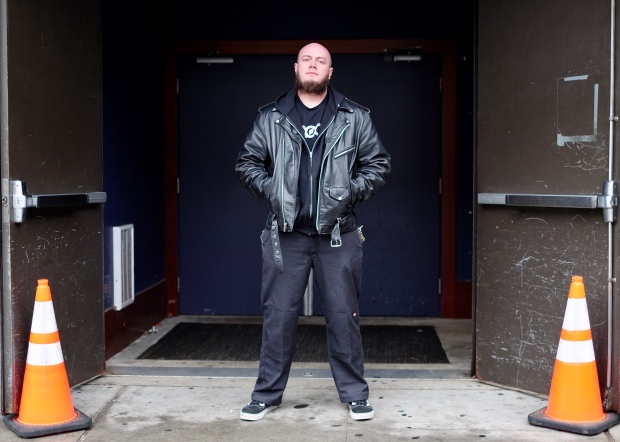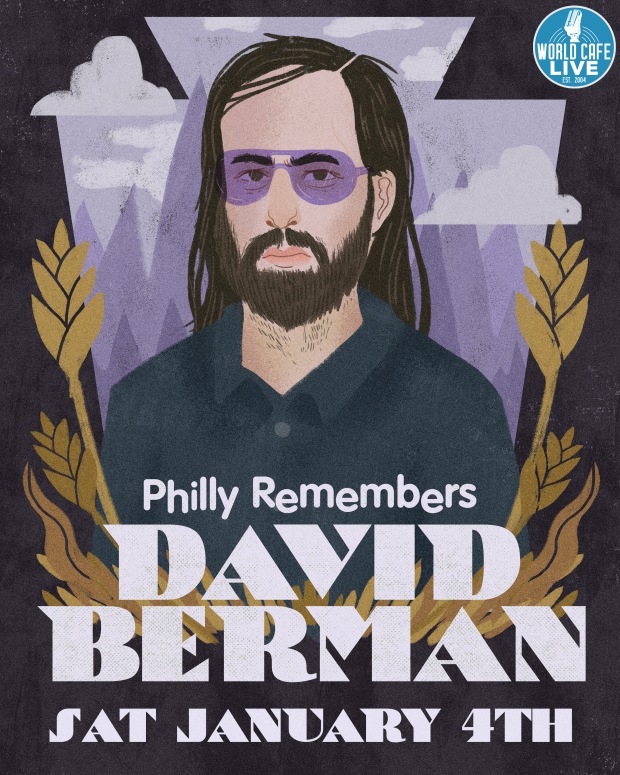BY ROB COTTMAN
I have had the fortunate opportunity to meet many people throughout my life and travels, and every single one of them has taught me something about getting where you want to go. In this current chapter of my life as Executive Chef of World Cafe Live, I am grateful to work alongside many people in both the hospitality and music industry who are working hard daily to stay sharp in their respective fields. Here you will find my interviews with some of those people, and an exclusive inside look behind the scenes of who we are and what we do and why we love it.
EPISODE FOUR: Meet Blair
I am very motivated by the continual growth of our organization and our growing WCL family. After a very deliberate decision to combine the long running work of traditional World Cafe Live operations with great outreach of LiveConnections nonprofit, we are very fortunate to now be in a position to go after our priorities by putting people and their experience first. A key player in this transition and its progress is Chief Advancement Officer of the newly combined organization Blair Bodine.

Blair Bodine speaks about LiveConnections and World Cafe Live’s educational programming. November 2019. Photo courtesy of Wide Eyes Studios.
RC: What exactly is a Chief Advancement Officer and how do you serve the larger World Cafe Live goals?
BB: As a nonprofit music venue, World Cafe Live is a mission-driven organization. Our mission is to “open doors to shared experiences that create connections, inspire learning and celebrate who we all are.” I’ve been thinking a lot about what it means to be “mission-driven.” My role as Chief Advancement Officer is to secure the resources that fuel our journey. I help put gas in the tank, so to speak, as we drive forward towards achieving our mission.
And in less metaphorical language, my role is to think strategically about how we are able to grow the organization. This includes all areas of fundraising and “friend-raising,” like annual giving campaigns, applying for foundational grants, nurturing relationships with our donors, developing community partnerships and soliciting corporate sponsorships. I am also fortunate that I serve as a teaching artist for one of our music-making residencies. As a songwriter and musician, I personally feel very connected to our mission and the work that happens here.
RC: What is it like to work every day out of an office in a live music venue?
BB: Polyrhythmic! I’m sure you’ll agree, on a daily basis the energy here at World Cafe Live is phenomenal. During our educational Bridge Sessions this morning, our teaching artists were speaking with middle schoolers about polyrhythms from West African music traditions. They explained that when you have more than one rhythm, different patterns can intersect in new and interesting ways. I thought, “That’s what it’s like working a World Cafe Live!” There’s so much positive, polyrhthmic energy here. In 2019, we presented 600 concerts, featuring artists from 25 different countries. I love the fact that 150+ of those were local Philly-based artists.
As a team, we’ve been talking a lot about the ways that World Cafe Live can nurture the vibrant music ecosystem here in Philadelphia. I see that vibrancy reflected in our “house of music.” I get to work every day with a creative, collaborative team. And the perk of working at a live music venue is definitely the live music. I am amazed by all the incredible artists that play here any given night of the week. Some of my favorites in the past few weeks have been Tanya Tucker with Brandy Clark, Bethlehem and Sad Patrick and Nada Surf.
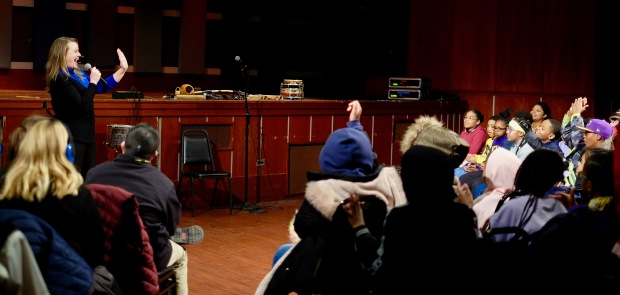
Blair Bodine welcomes students to a Bridge Session.
RC: You interned for World Cafe Live & LiveConnections in 2010 while at UPenn, what was that like and what brought you back full time in 2017?
BB: At the time, LiveConnections was the nonprofit-in-residence at World Cafe Live, providing free, interactive performances for students from Philadelphia public schools and youth and adults with disabilities. In 2010, our free educational programming was only a few years old. Lori Landew, who is now our board chair, suggested I get involved and it changed my life! To this day, it is the best internship I’ve ever had. Our President and CEO Hal Real and our Producing Director of Arts & Learning David Bradley were incredible mentors to me. They also gave me a lot of responsibility for this alleged “internship,” which I really appreciated. I got to recruit new schools to come to World Cafe Live, meet with community partners and craft fundraising letters for donors. It was a real education.
It guided my career path in a very substantial way. After 2010, I worked for the Nashville Symphony, running their education and community engagement programs. During my time in Nashville, I often spoke about LiveConnections & World Cafe Live because the programming we developed here was so unique.
In 2017, I was looking for new opportunities in the nonprofit sector and reconnected with World Cafe Live. I was excited for the chance to come back! It was inspiring to see how much the educational programming had grown in seven years, from serving 500 participants to serving more than 5000 annually. And throughout that growth, collaborative music-making has remained the heartbeat that runs through all the programming we offer.
RC: As an accomplished musician yourself, how has the work you do had an impact on your own path as an artist?
BB: That’s a generous and thoughtful question, thank you! I began playing guitar and writing songs in middle school. When I work with students now, I remember how making music as a teenager gave me a sense of identity, a way to express myself and a pathway to connect with others. Our programs seek to do the same thing. I am thinking of our in-school residency at Hill-Freedman World Academy, a public high school in East Mount Airy. In collaboration with the school’s Music Technology teacher, our teaching artists and students spend the year writing songs and producing music, resulting in a fully-produced album. It’s so, so good. Sorry for the shameless plug, but you can listen to it here: https://www.liveconnections.org/residency/wake-up-everybody/
And I’m fortunate to work as a teaching artist for World Cafe Live’s “Immigrant Songs” residency, a storytelling and songwriting program serving refugee and immigrant teens. We deliver this program in partnership with the HIAS PA, the nonprofit that provides refugee resettlement assistance to families here in Philadelphia. Students record their songs at World Cafe Live and perform at community events like World Refugee Day. A majority of the students have been in the U.S. for three years or less and many are in the process of learning English. So in this context, songwriting takes on an entirely new meaning. Music offers is a pathway for connection, a platform for self-expression and a way to hone new language skills.
“Immigrant Songs” has made an incredible impact on me as an artist. I co-facilitate this program with teaching artist Ami Yares, who has done a lot of work using music as a tool for peacebuilding. One day, Ami and I were working with the students on a song about their dreams for the world. We wrote their short responses on index cards. “My dream for the world is… peace, no more war, friendship, more soccer, etc.” Then, we shuffled around the index cards and tried out different verses. The result was a hopeful anthem the students wrote called “When the World Comes Around,” For one verse, the students even wove their first languages into the lyrics, teaching each other how to sing “No more war” in Arabic, Spanish and Ukrainian. I remember walking to the parking lot with Ami that day; both of us were awed by what the students had accomplished, prompted by one question and a handful of index cards. And that process is something I had never tried with my personal songwriting. Needless to say, I learned a lot that day.
RC: What drives you to work with young people?
BB: Honestly? They’re cooler than me and I’m jealous of them!
As creative humans, young people are more empathetic, make bolder artistic decisions and see the value of arts and culture in their everyday lives. As adults, we sometimes forget how to value these things. Who doesn’t want to be around that inspiring energy?
RC: How have your travels impacted your outlook on the work you do?
BB: We all know the phrase, “Music is a universal language.” I’ve been lucky that I’ve had the privilege of putting that phrase to the test. As a student, I studied Chinese and majored in East Asian Languages and Cultures. When I traveled to Beijing to study abroad, I brought my guitar and began trying (very unsuccessfully, I might add) to write songs in Chinese. But, I got to experience how music is viewed as a community resource there. In Beijing, musicians will bring traditional instruments to the park and not only begin playing songs, but they will also distribute songbooks so that people can join in singing. Huge crowds will form. It’s incredible.
It reminds me a lot of the community-building concert we hosted last year called “A Song Everyone Can Sing” which celebrated inclusivity through group singing. People with and without disabilities were invited to join in the music-making, celebrating human ability and the joy of singing together. Like all of us here at World Cafe Live, I am very interested in moments like these that celebrate the “people connecting power” of music.
RC: You have a contagious energetic vibe, how do you maintain a positive attitude during adverse times?
BB: Candy.
RC: What are you currently not yet doing that you would like to tackle in 2020?
BB: I think the timing is perfect for World Cafe Live to host a huge fundraising/friend-raising event in in 2020. Now that we are a nonprofit, 100% of our proceeds are reinvested into the WCL experience. We can dream big about building an event that celebrates music-making, culinary arts and entertainment. There is a lot to celebrate here!
And personally this year, I’d like to learn more about the recording arts and digital production. I see this as an essential ingredient for making music in the 21st century. In our education programs, we have incredible teaching artists who are weaving this technology into their practice. I am eager to learn more.


